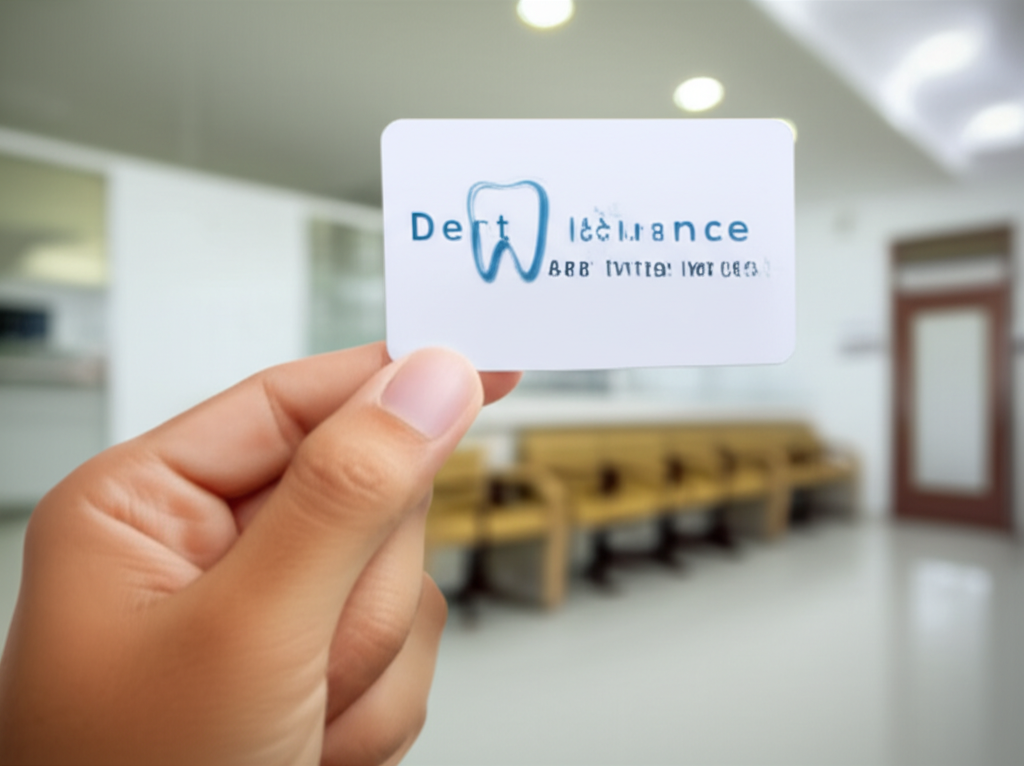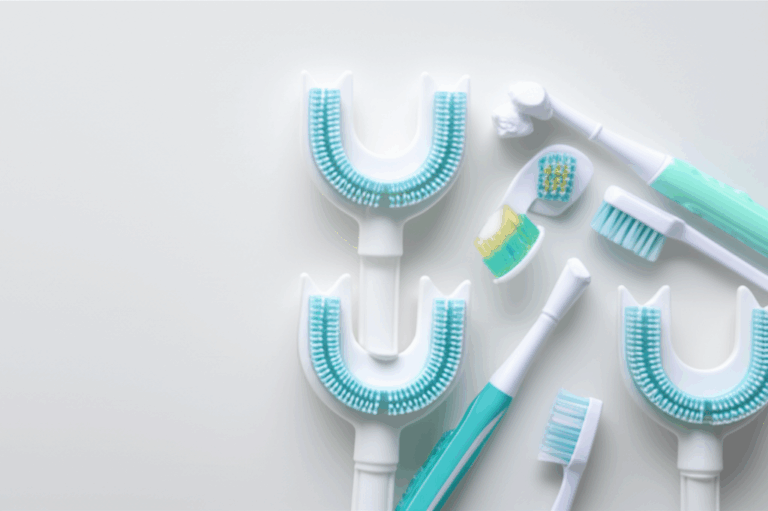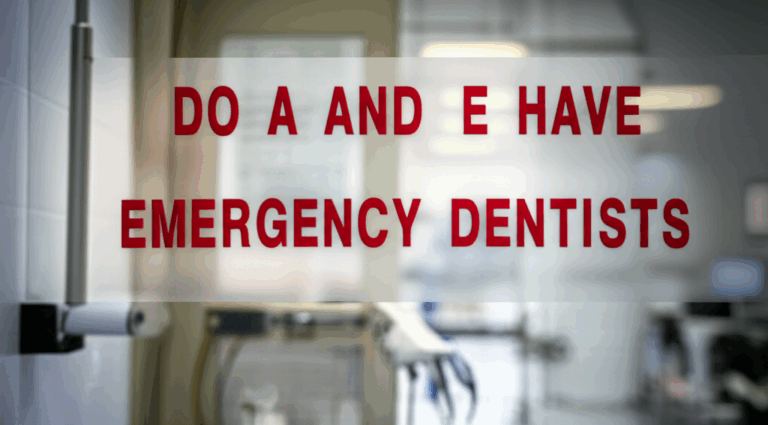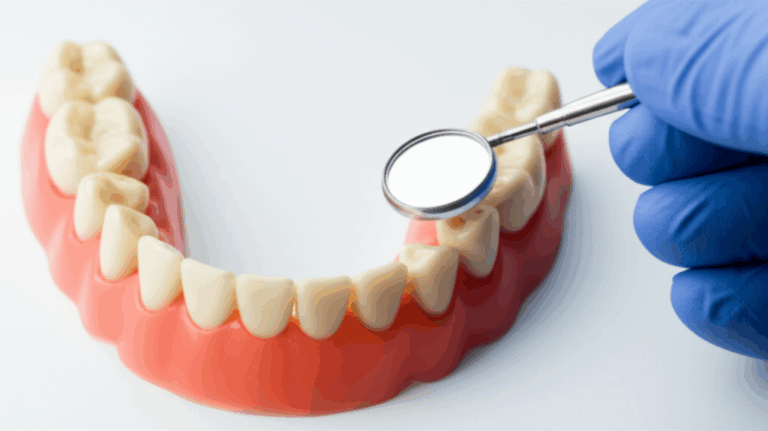
Are Holistic Dentists Covered by Insurance? Understanding Your Benefits
Table of Contents
Introduction: The Short Answer I Give My Patients
I get this question a lot. Are holistic dentists covered by insurance? My short answer is yes for many normal dental procedures and maybe for special holistic things. The real answer needs some explaining because it depends on your insurance, whether your dentist is in the plan or not, what code is used, and how well your dentist proves you really need it. I learned this after helping patients deal with pre-approvals, waiting times, and claims that sometimes got denied but we managed to change their minds later.
What Holistic Dentistry Really Means and Why Insurance Gets Tricky
Here’s how I put it. Holistic dentistry, also called biological or natural dentistry, looks at your whole body, not just your mouth. These dentists like safe materials, metal-free fillings and crowns, and methods that try not to harm health. They don’t use some things — like fluoride, metal crowns, or old ways of removing mercury fillings — if they think they’re bad for you.
Where insurance gets confusing:
- Regular vs special care: Things like check-ups, cleanings, X-rays, fillings, tooth pulling, crowns, bridges, dentures, gum treatments, and root canals are normal in all dental offices. Insurance usually pays for these if they use a regular code and follow the plan rules.
- Holistic extras: Some holistic treatments don’t have a clear code or the insurance calls them “experimental.” Things like ozone therapy, tests for which materials you react to, certain ways to clean out mercury, special diets, or oil pulling. These usually aren’t paid unless a real code fits and you prove you need it.
From what I’ve seen, the dentist’s beliefs don’t affect coverage. The code does. The plan does. The paperwork does.
How Dental Insurance Works: PPO, HMO, and Indemnity Plans
I keep it simple because that helps people know what to expect.
- PPO (Preferred Provider Organization): PPOs give you the most freedom. You can see dentists outside the plan and still get some money back. Lots of holistic dentists are out-of-network or ask you to pay upfront. PPOs often pay something for normal care even if your dentist is not in the plan, but you might have to pay the rest.
- HMO (Health Maintenance Organization): HMOs want you to stick with their dentists. If your holistic dentist isn’t in the HMO, you’ll probably have to pay everything yourself. HMOs are cheaper up front, but don’t work well if you want biological dentistry.
- Indemnity/Traditional Plans: These pay part of the cost after a deductible. Dentists can set their own prices. The plan pays its part based on its fee rules. This can be good with alternative dentistry, because what matters is the code, not the dentist’s network status.
- Fee-for-service offices: Most holistic dentists ask you to pay first, then they send the claim to insurance. You get paid back by your plan if the code is accepted. These offices know what codes work and can explain your case well.
Key Factors That Decide Coverage for Holistic Dental Care
After seeing a lot of claims and reading lots of benefits, these are what count.
- Type of treatment
- Normally covered: Check-ups, cleanings, X-rays, regular fillings, pulling teeth, gum treatments, root canals, metal-free crowns/bridges (if needed), dentures. Braces are a bit different and usually have limits.
- Holistic extras: Mercury filling removal just for detox, ozone, special nutrition, non-standard therapies, material testing, surgery for jawbone spots, and some alternatives to root canals. Usually not covered or called “experimental.”
- Insurance plan details
- Deductibles, yearly limits, how long you have to wait, co-pays, and whether your dentist is in the plan or not all matter. Most plans pay 100% for prevention, 80% for basics, 50% for big stuff. But your plan might have other numbers.
- CDT codes and paperwork
- If the procedure uses a normal dental code, you have a shot at getting paid. If not, it’s usually denied. Good paperwork makes a big difference.
- Medical necessity
- Insurance only pays for things it thinks are really needed. Not for stuff you just want done for “wellness.” If your old filling is bad — decayed, cracked, or failing — insurance might pay. If you take out a good filling just for “detox,” probably not.
How I Verify Holistic Dental Coverage Step by Step
Here’s exactly what I do for people before they get holistic care.
- I call the number on your card. I ask if they pay for out-of-network dentists and what percent. I ask how they decide what to pay if your dentist’s prices are higher. I check the deductible, yearly maximum, and if there’s a waiting period.
- I ask the dentist for a step-by-step list with the codes and costs. For example, fillings, crowns, pulling teeth, gum work, X-rays, 3D scans, implants or dentures. If “alternatives” are in the plan, I ask what code they’d send.
- I go code by code and ask if it’s covered, and if you have to get approval before starting.
- I send the whole plan to insurance to get an estimate in writing. This isn’t a sure thing, but helps avoid big surprises.
- After the work, I look over the EOB for what was allowed, what the insurance paid, what you owe, and if it matches what was promised.
- Many holistic offices know how to “translate” what they do for insurance. They use codes insurance will pay for and write strong notes to show why you needed the treatment.
Real-World Examples: What I’ve Seen Covered and Denied
Let’s go through what usually gets paid for, and what doesn’t.
Check-ups, cleanings, X-rays:
- Most plans pay for two cleanings a year, check-ups, and basic X-rays. If you don’t want fluoride, you just skip that part — but won’t get extra money back. Using digital X-rays doesn’t change coverage.
Fillings and material choices:
- Most PPOs pay for white fillings even on back teeth. Some pay as much as they would for a silver one and you cover the difference. If you remove a bad filling because it’s decayed or cracked, insurance may pay for the new one. If you just want old fillings out “to detox,” probably not.
SMART protocol and removing mercury:
- Insurance doesn’t pay for the “SMART” method as a special thing. Instead, they pay for taking out a bad filling and putting in a new one, if you need it. Ozone rinses, vitamin C drops, or “detox” usually aren’t paid for.
Metal-free crowns and safe materials:
- Holistic dentists use metal-free crowns like zirconia or E.max. Most plans pay for a crown if the tooth really needs it, no matter the material. Some pay what a metal/porcelain crown would cost and you pay the extra for zirconia. It’s good to know this before you start so you aren’t surprised. If you want to see how crowns are made, a crown and bridge lab or zirconia lab can show more.
Ceramic and zirconia implants:
- Many plans don’t pay for implants or only pay a little. Some pay just for the crown but not the implant post. Ceramic (white) implants cost more, so you might pay extra. Ask your plan about implant codes (like D6010) and what parts they’ll cover.
Root canal alternatives:
- Holistic dentists might suggest taking out a tooth instead of a root canal, then use an implant or partial denture. Insurance usually pays for extractions. They might pay for a bridge or partial. Most plans don’t pay for “alternative” therapies that aren’t approved codes.
Ozone therapy and compatibility testing:
- Ozone is almost never covered, because there’s no code for it. Same with allergy or material testing — patients pay themselves.
TMJ and night guards:
- Some plans pay for night guards if you grind your teeth. TMJ therapy itself is usually medical, not dental insurance, and gets complicated. Good night guards from a trusted night guard dental lab can help.
Dentures and partials with a holistic approach:
- Metal-free partial dentures exist, but they aren’t right for everybody. Insurance usually still pays for dentures, but you may pay extra for special materials.
Orthodontics and holistic care:
- Braces and aligners are usually covered by specific plan rules, no matter who does them.
Managing Costs When Insurance Comes Up Short
Here’s how I help people save money even when insurance doesn’t cover everything.
- Payment plans: Many holistic offices let you pay a little each month. Ask before you start.
- Dental savings plans: These aren’t insurance but can lower costs with certain dentists.
- HSA and FSA: Health savings or flexible spending accounts help you pay for dental care with pre-tax money. Many holistic dental needs fit these rules.
- Self-pay discounts: Paying all at once sometimes means you get a small discount.
- Prioritize what you do: Take care of urgent problems first and spread out big work over more than one year if you can, to use new insurance money each year.
- Appeal denials: Don’t give up if insurance says no. Read their reason, add any needed X-rays or notes, and try again. Sometimes you win.
In-Network vs. Out-of-Network: What It Means for Holistic Care
This confuses a lot of people, so here’s the deal.
- In-network dentists take the rates the insurance says. You pay less. The insurance covers more.
- Out-of-network dentists set their own prices. Insurance may cover less or only up to a certain amount. You may get billed for the rest (“balance billing”).
- A lot of holistic dentists choose to be out-of-network so they can use whatever materials and labs they want. You can still get insurance money, but will need to budget and understand you could pay more.
Plan-by-Plan Notes: Cigna, Delta Dental, Aetna, UnitedHealthcare, Guardian, MetLife, Humana, and Government Plans
Coverage changes a lot even under the same insurance company, but here’s what I look for:
- Cigna, Delta Dental, Aetna, UnitedHealthcare, Guardian, MetLife, Humana: All these companies have PPOs that usually pay some out-of-network claims. They also sell HMO plans that don’t. Always check your exact plan for what’s covered.
- Employer plans usually have better coverage than individual ones. Watch annual limits and implant coverage.
- Medicare Advantage sometimes adds dental, but coverage is limited. Original Medicare doesn’t cover basic dental.
- Medicaid for adults is very different from state to state. Implants, extra tests, or holistic treatments are hardly ever paid for adults. Kids usually get more.
- Veterans dental benefits depend on what group you’re in. Holistic-specific stuff often isn’t offered.
CDT Codes: The Quiet Key That Unlocks Coverage
Here’s what matters: Insurance pays for things with real codes and written reasons they’re needed. Your dentist’s beliefs don’t show up on the claim — the code does.
What to do before starting:
- Get a printed plan with all codes.
- Call insurance about those codes.
- Get pre-approval for big or unclear things.
Common codes:
- D0120 (check-up)
- D1110 (cleaning)
- D0150/D0160 (first visit or in-depth exam)
- D0210/D0330 (full set of X-rays / pano x-ray)
- D2391-D2394 (white fillings for back teeth)
- D2740 (porcelain/ceramic crown)
- D2950 (build-up), D2954 (post & core)
- D6010 (implant placement), D6057 (abutment), D6065-D6067 (implant crowns)
- D5110/D5120 (complete dentures)
- D5213/D5214 (partial dentures)
- D7880 series (TMJ – usually medical)
- D9940/D9944-D9946 (night guards)
No real code means the claim probably gets denied (like with ozone or compatibility tests).
Denials, EOBs, and Appeals: How I Navigate Pushback
A denial isn’t always the final answer. Here’s how I act:
- Read the reason: Is it too soon since your last treatment? Not needed? Wrong code? Not enough proof?
- Fix it if you can: Add missing X-rays or notes, or use a more fitting code.
- Send a letter that explains why you need this treatment: State what’s wrong and why you can’t just wait. Include notes and proof. The “holistic” angle won’t change their mind, but clear medical reasons can.
- Explain “downgrades”: Sometimes you get paid for the cheaper option (like metal crown) and pay the rest for what you want (like zirconia).
- Request peer review: Sometimes a dental reviewer can overturn a denial.
The Bigger Picture: Why People Still Choose Holistic Dentistry
Even when insurance won’t pay for everything, people want holistic dentistry for good reasons. They want safe materials, natural looking teeth, and a dentist who thinks about their whole body, not just their mouth. They want less drilling and fewer chemicals.
I never push one way or another. I give the facts, quote the costs, and help people plan so they get care they believe in. If crowns, implants, or dentures are in your plan, remember the dental lab doing the work matters a lot. That’s where a top crown and bridge lab, a strong zirconia lab, or a good implant lab makes a big difference.
Looking Ahead: The Future of Holistic Dental Insurance
Here’s what I think will happen. More safe, new materials will get accepted. Insurance is already okay with metal-free crowns if you need them. People care more about how their mouth affects their overall health. I think laser tools and other new things will be covered more with time, and if a holistic treatment gets a real code and research to back it up, coverage can follow.
Quick Answers to Common Questions
- Do PPO plans cover holistic dentists?
- Often, yes. But you’ll have higher costs out of network.
- Do HMOs cover holistic dentists?
- Only if the office is in the network, which isn’t common.
- Are fluoride-free cleanings covered?
- Yes, cleanings are covered. Skipping fluoride doesn’t make a difference.
- Will insurance pay for amalgam removal for detox?
- No. If there is decay or damage, maybe. Otherwise, not likely.
- Are biocompatible materials covered?
- Usually yes if needed, but you might pay extra for top-grade materials.
- Is ozone therapy covered?
- Almost never by standard plans.
- Can I use HSA or FSA for holistic dental care?
- Yes, for things insurance won’t cover, as long as it’s real dental care.
- Do plans cover ceramic or zirconia implants?
- Some do, most don’t. Check your plan. Expect to pay more for the ceramic type.
- Does insurance cover root canal alternatives?
- Yes for normal things like extractions or dentures. Not for “experimental” stuff without codes.
- What about TMJ treatment?
- Night guards might be paid by dental insurance. Other TMJ care is usually medical.
- Are holistic dentistry services for kids covered?
- Normal preventive care is. Extras aren’t.
- Can I appeal a denial?
- Yes. Send better records and a doctor’s reason. Sometimes you win.
Plan-by-Plan Tips:
- Cigna, Delta Dental: PPOs are better for holistic care. Ask about “downgrades” for fillings or crowns.
- Aetna, UnitedHealthcare: Ask whether they pay out-of-network dentists based on actual cost or their set maximum. This changes your bill a lot.
- Guardian, MetLife: Check waiting periods for big stuff. Ask about implants.
- Humana: Double-check network rules and yearly limits.
- Medicare Advantage: Read dental rules closely; care is very limited.
- Medicaid: Depends on your state. Adults get basics only.
- Employer vs individual: Employer plans usually give you higher yearly limits.
A Few Words on Labs and Materials
Holistic dentists care about safe, high-quality stuff. The lab your dentist uses makes a difference for how well your crown or denture fits and lasts. If your plan covers crowns, bridges, or even veneers, ask what lab your dentist trusts. Good labs use strong CAD tools and real craftsmanship. If you’re getting veneers for looks, check out how a good veneer lab does them—though this is cosmetic and not covered.
CDT Coding Tips I Share With Patients
- Ask for a simple treatment plan and keep it.
- If the treatment is “holistic only,” ask if there’s a code. If not, don’t expect coverage.
- For silver filling replacements, make sure your chart explains why it’s needed (like decay or crack).
- For crowns, get pre-approval.
- For implants, ask exactly what’s covered (just the post? the crown? all of it?).
- For braces, check age limits and yearly payout amounts early.
One Personal Story:
I once helped a patient who wanted a full mouth of holistic work: removing all mercury fillings the “SMART” way, ozone at every visit, ceramic implants, and metal-free crowns. We sent in a big plan for approval. Insurance agreed to cover replacing bad fillings, paid for some crowns but at a lower rate, skipped the ozone part, wouldn’t cover implants but did help with partial dentures. We split treatments up, used HSA for extra costs, and won two appeals after sending better X-rays. The patient knew what was happening at every step, which made them feel better. That taught me that good planning and honest info help more than hoping for the best.
What a “Covered by Insurance” Plan Looks Like in Practice
For maximum coverage and a holistic approach, here’s the usual steps:
- Begin with exams, cleanings, X-rays, any needed gum work. Insurance pays for these.
- Replace old, bad fillings with white ones. Write down clear reasons.
- Do crowns where really necessary, get approval, expect to pay extra for fancy materials.
- If a tooth cannot be fixed, pull it and maybe use a regular partial denture which insurance usually helps with. Look at implants later if you can.
- Pay for holistic extras (like ozone or testing) yourself or with HSA/FSA.
Why Your Documentation Matters as Much as Your Plan
Insurance pays for what you can show you need — with X-rays, photos, and dentist notes. If the paperwork is strong, your chances go up, whether you go to a regular or holistic dentist.
Final Thoughts
To sum up, many regular treatments at holistic dentists are covered because insurance pays for the work done, not the beliefs behind it. Special holistic treatments without common codes are tough to get paid for. To get the most from your plan: focus on codes, keep good records, and get pre-approvals for bigger treatments. Use PPOs for flexibility, HSA/FSA for extras, and get your treatment steps in the right order.
I’ve helped many people through this process. The ones who do best ask simple questions, plan ahead, and pick dentists who explain everything. If life-like crowns, implants, or dentures are on your list, remember the lab doing the work matters a lot—a strong crown and bridge lab, expert zirconia lab, trusted implant lab, or solid denture lab will help your dentist give you long-lasting, safe results.
You don’t have to know everything about insurance. You just need to know your own plan, your codes, and what’s most important to you. With those three, you’ll make good choices and feel sure about your care.








